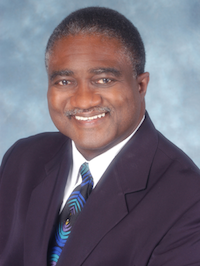February 27, 2015

George E. Curry, NNPA Columnist
In the interest of full disclosure, I have been a W.E.B. DuBois fanatic since my teenage years in Tuscaloosa, Ala. I have a healthy collection of books by and about DuBois, including David Levering Lewis’ two-volume biography of DuBois (W.E.B. Du Bois: The Fight for Equality and the American Century 1919-1963 and W. E. B. DuBois: Biography of a Race, 1868-1919), each a winner of the Pulitzer Prize.
“I did not always agree with Trotter then or later. But he was an honest, brilliant man, and to treat as a crime that which was at worst mistaken judgment was an outrage. I sent out from Atlanta in June 1905 a call to a few selected persons ‘for organized determination and aggressive action on the part of men who believe in Negro freedom and growth.’”
I first became enamored of DuBois at Druid High School when I learned he was the polar opposite of Booker T. Washington. In his Atlanta Compromise speech in 1895, Booker T. said in defense of racial segregation, “In all things that are purely social we can be as separate as the fingers, yet one as the hand in all things essential to mutual progress.” DuBois, on the other hand, was unwilling to settle for anything less than full economic, social and political equality for African Americans.
When I learned that DuBois and I shared the same birthday – February 23 – I was ecstatic. I was born at 11:30 at night and told Mama if she had waited another 31 minutes, I don’t know if I would have ever forgiven her, not that the timing of my entry into this world was under her control. Enough disclosure. As much as I admire William Edward Burghardt DuBois – my middle name is also Edward – in temperament, I am probably more like William Monroe Trotter than DuBois. And we both pursued full-time careers in journalism.
Even during Black History Month, I am surprised that Trotter’s name is rarely, if ever, mentioned. Born in Chillicothe, Ohio, Trotter grew up in Boston. He graduated magna cum laude and Phi Beta Kappa from Harvard in 1895 – the same year DuBois became the first African American to earn a Ph.D from the university. A year later, Trotter earned a master’s degree from Harvard in finance but could not find a job in banking because of his race.
Instead, Trotter worked at his father’s real estate company. In 1901, he and George Forbes founded the Boston Guardian newspaper, an uncompromising voice for Black liberation that routinely denounced Booker T. Washington as Benedict Arnold, the Great Traitor and an errand boy for Northern philanthropists. When Washington went to Boston to address a National Negro Business League meeting at a local Black church, Trotter repeatedly interrupted him, challenging his accommodationist views. In his autobiography, DuBois wrote that Trotter attempted to make Washington “answer publicly certain questions with regard to his attitude toward voting and education.” Instead of getting an answer, Trotter got arrested in what was mislabeled “The Boston Riot” for disorderly conduct and served a month in jail. It is widely recognized that the founding of the NAACP grew out of the Niagara Movement. But it is not widely known that the Niagara Movement was established as a direct result of William Monroe Trotter’s arrest after confronting Booker T. in Boston. “…When Trotter went to jail, my indignation overflowed,” DuBois wrote.
“I did not always agree with Trotter then or later. But he was an honest, brilliant man, and to treat as a crime that which was at worst mistaken judgment was an outrage. I sent out from Atlanta in June 1905 a call to a few selected persons ‘for organized determination and aggressive action on the part of men who believe in Negro freedom and growth.’” Answering that call for a meeting on the Canadian side of he U.S./Canada border were 59 African Americans from 17 states in what became known as the Niagara Movement.
Though instrumental in the Niagara Movement and the founding of the NAACP, Trotter refused to join the nascent national civil rights group because he felt its leadership and finances were controlled by Whites. Trotter continued to press for civil rights through his National Equal Rights League. He remained an advocate for better treatment of African Americans in World War I, tried to get the racist movie “Birth of a Nation” banned in Boston and confronted President Woodrow Wilson over his policy of segregating of Black federal employees. Trotter continued to fight for civil rights until his death on April 7, 1934 at the age of 62. The William Monroe Trotter Institute at the University of Massachusetts publishes a scholarly journal called the Trotter Review. The editor of the journal, Kenneth J. Cooper, is a friend and former colleague from our days as reporters for the St. Louis Post-Dispatch. Several years ago, he asked me to serve on the editorial board of the Review. I quickly accepted.
I just celebrated Feb. 23 as my birthday and the birthday of my hero, W.B. DuBois. But being affiliated with the Trotter Review, even from a distance, keeps me connected to William Monroe Trotter as well. DuBois and Trotter – it doesn’t get any better than that in Black History Month or any other month.
George E. Curry, former editor-in-chief of Emerge magazine, is editor-in-chief of the National Newspaper Publishers Association News Service (NNPA.) He is a keynote speaker, moderator, and media coach. He can be reached through his website, www.georgecurry.com. You can also follow him on Twitter at www.twitter.com/currygeorge and George E. Curry Fan Page on Facebook.

